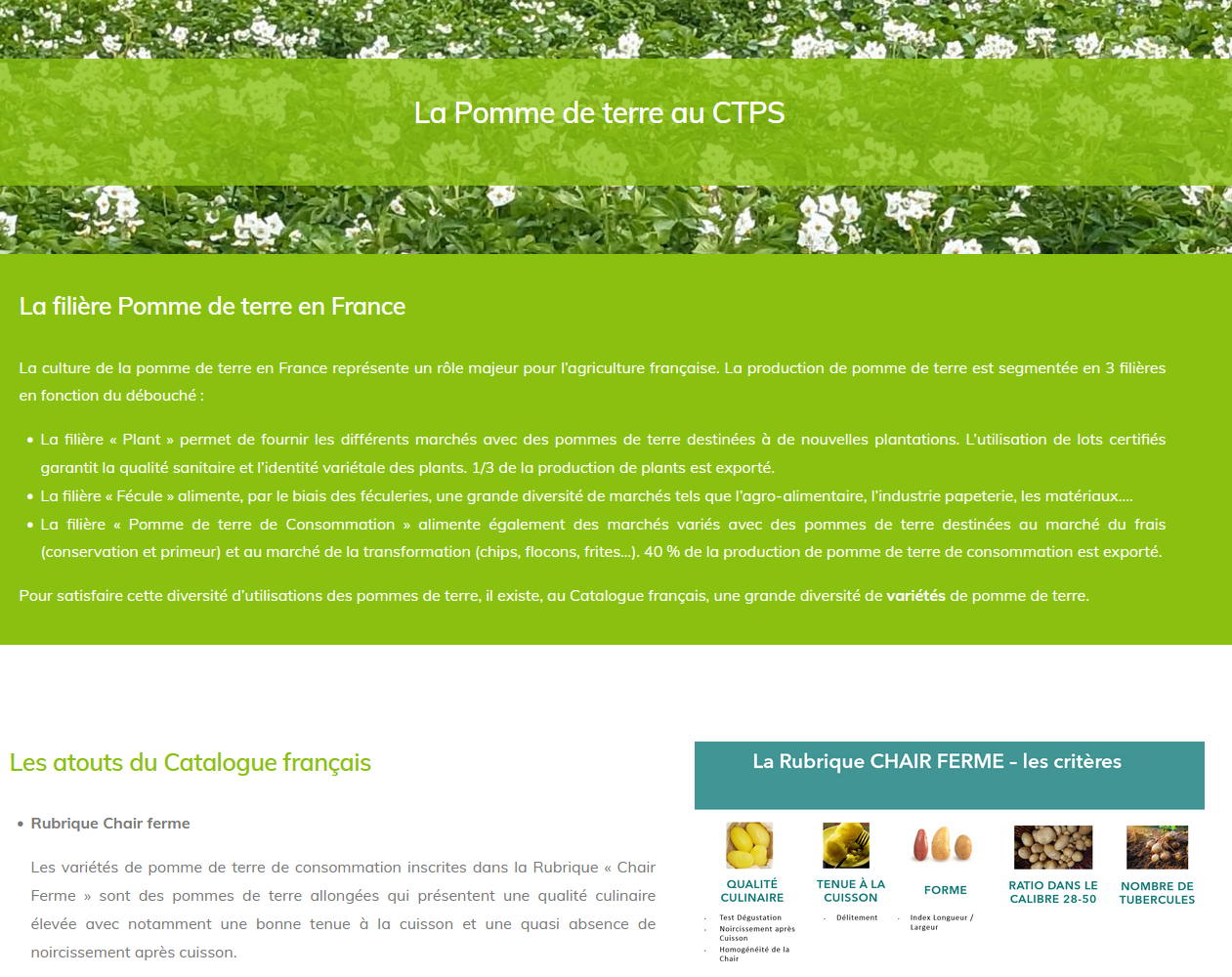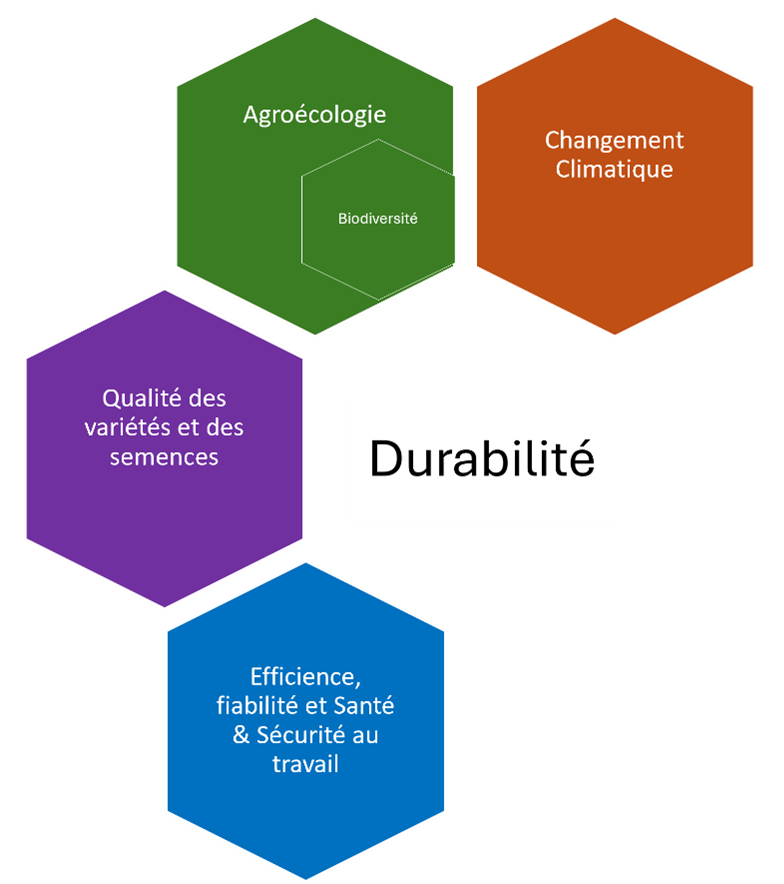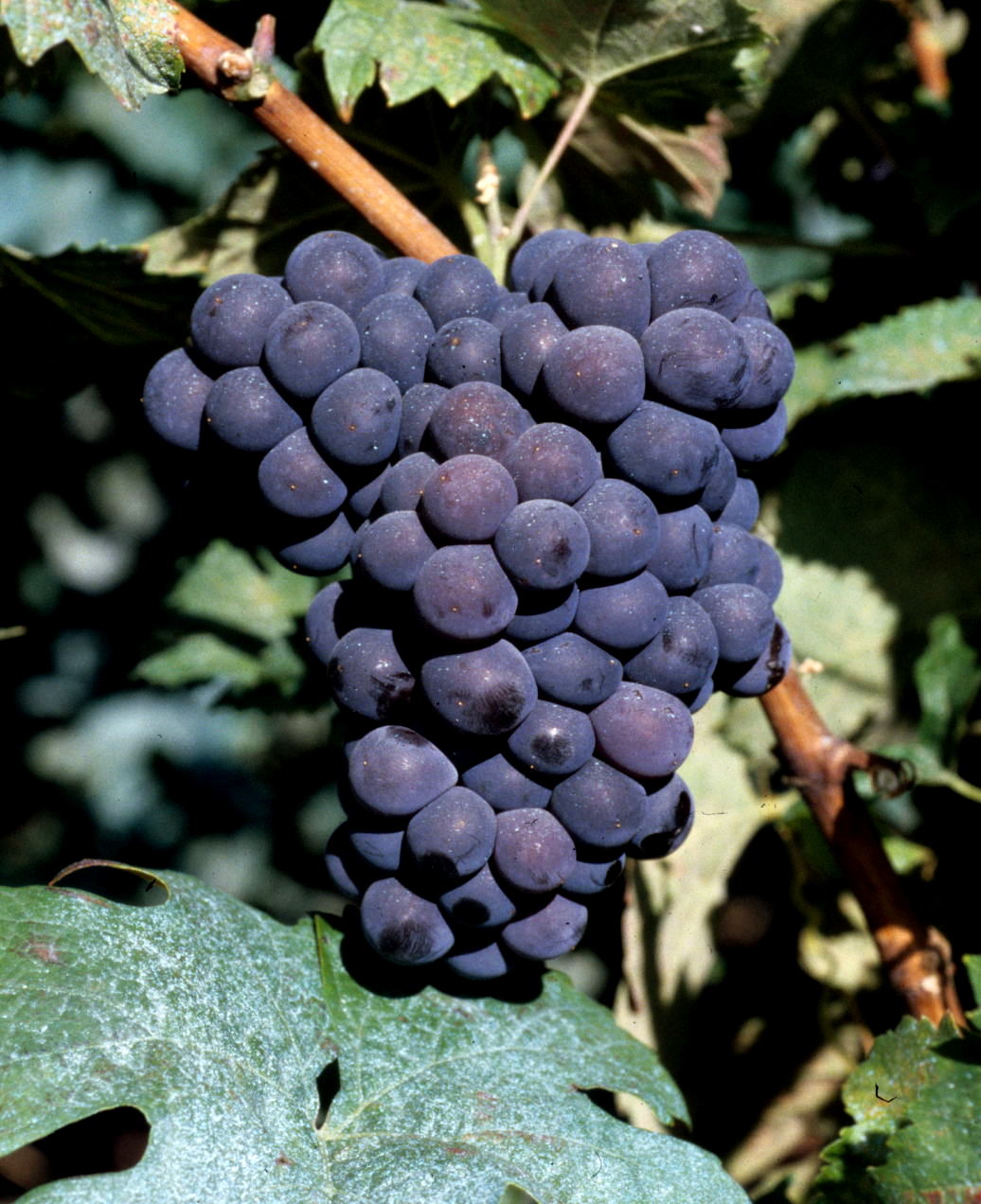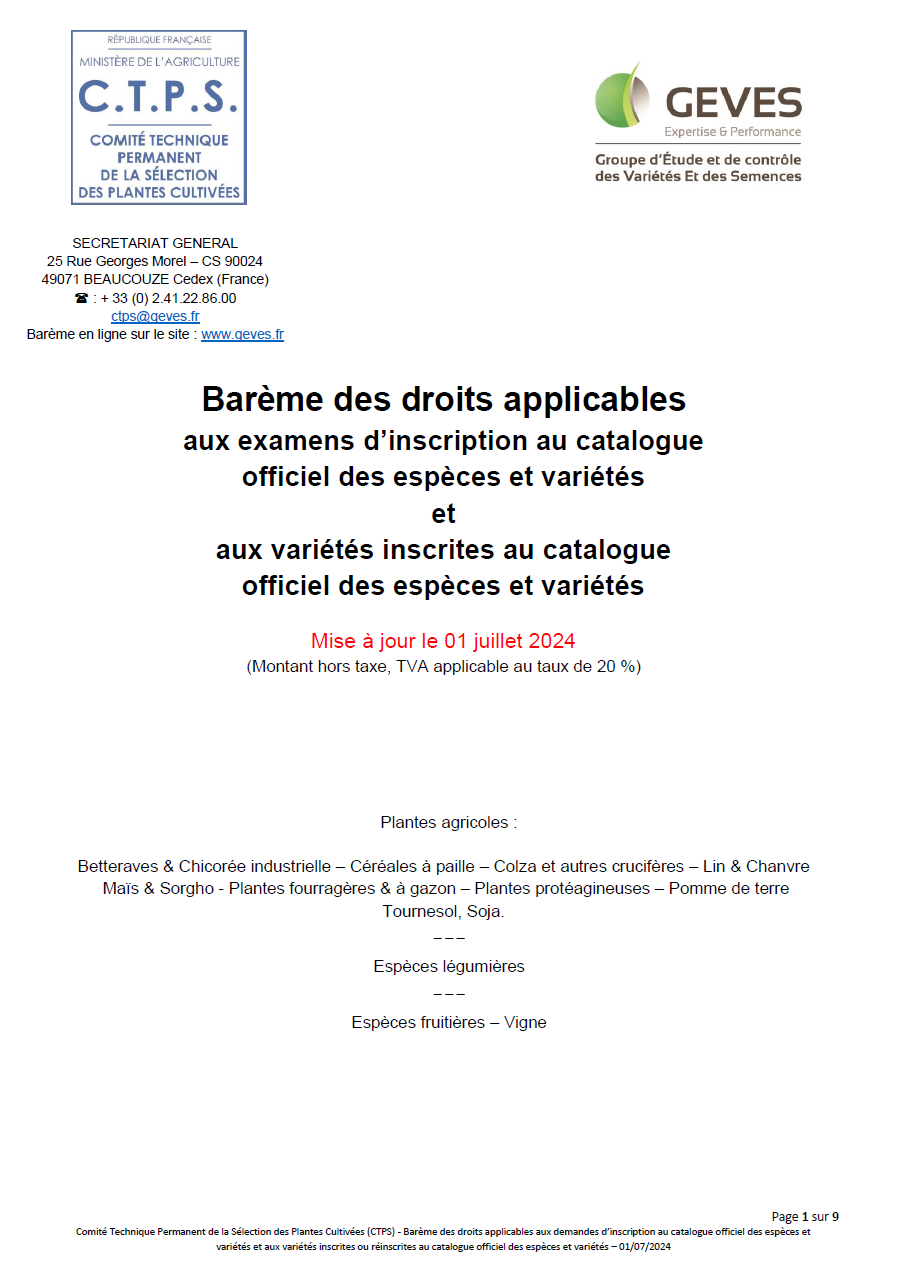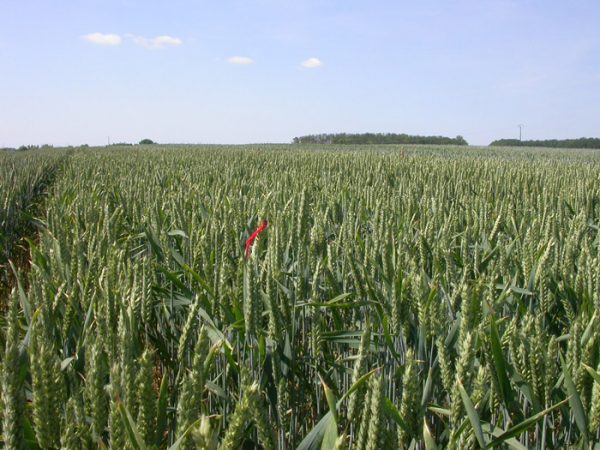
Scientific expertise and a research project to make varietal innovation a major lever of agroecological transition.
The plenary Committee of Permanent Technical Committee for Plant Breeding (CTPS) requested his Scientific Committee to bring responses to the question “Which varieties for agroecology?”. This request aims at enlightening CTPS groups, with the ambition to make plant breeding a major lever of agroecological transition.
The Scientific Committee of CTPS met on October 2, 2020, within the framework of this request .
The presentations of 4 granted projects of the French Priority Research Program ” Growing and protecting crops differently “ (Specifics, Mobidiv, BeCreative and Sucseed) and the analysis of scientific literature shared the same observation of a greater diversification of cropping systems, with a diversity of varietal responses to provide.
In this context, the request to the Scientific Committee of CTPS will seek to define agricultures that will exist in a model based on agroecology, and the associated needs in terms of species, varieties, seeds and plants. It will examine the new genetic diversity to be searched and deployed, and the evolution of variety structures to be considered. The place of participatory processes of selection, and evaluation of plant material for agroecology will be studied. Testing devices to evaluate these varieties, to be deployed in breeder’s premises and in variety evaluation networks for national listing or post-registration purposes, will be proposed, in link with the RESO research project, led by GEVES.
In order to encourage the development of agroecology, the project RESO aims to be a driving force in helping to identify, describe and characterise varieties adapted to more diversified production systems, based on the functionalities offered by ecosystems. Working closely with the Scientific Committee of CTPS, it will formulate proposals for the evolution of current varietal evaluation systems, either in the short term, through accessible adaptations, or in the longer term, by imagining major or even disruptive changes.
The proposed modalities of variety evaluation for agroecology will be presented to the CTPS groups in March 2021. Reflections will then be carried out within each CTPS section, on the evolution of the regulatory system for variety registration, its implementation, and the dissemination of registration results, in order to allow the evolution of variety registration in link with agroecological transition. For species listed in the catalogue without a VCUS test, the morphological criteria used in the DUS study and indicating possible adaptation to agro-ecology could be the subject of communication.

